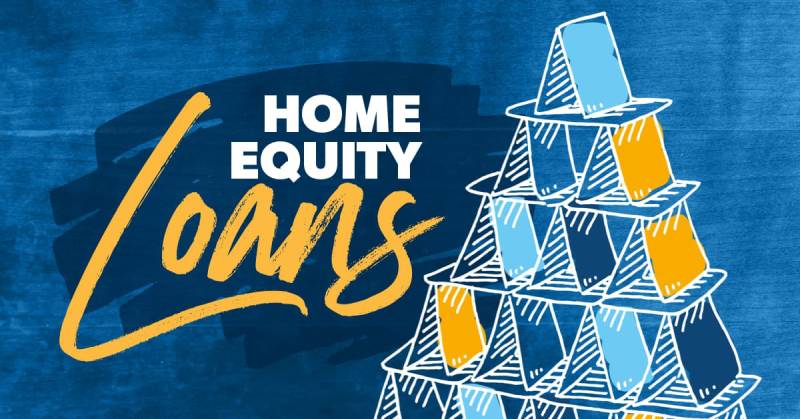You can use the equity in your house as collateral for an installment loan called a home equity loan. Good news always: homeowners can now borrow money at relatively low interest rates for any purpose thanks to this kind of financing. When taking out a loan against what is probably your most valuable asset, you must always proceed with prudence. The workings of home equity loans are explained by Report, along with when you should think about applying and when it makes more sense to explore alternatives.
The process of a home equity loan
With a home equity loan, you agree to repay the loan over a certain period of time at a fixed interest rate by borrowing a lump amount against the equity in your house. Typically, maturities range between 5 and 20 years, with the possibility of longer periods based on the lender.
Generally speaking, you can borrow up to 85% of the equity in your house, but each lender has different requirements. As the loan is secured by your house, you should be able to get a good interest rate. The specific conditions, however, will vary based on your income, debt-to-income (DTI) ratio, and credit history.
At closing, you get the entire amount, which you then pay back each month on top of your existing mortgage. Your lender may foreclose on your property if you don’t make your payments on time. Therefore, before you take on such a risk, it’s a good idea to decide if a home equity loan is the best option for your situation.
Is getting a home equity loan an intelligent idea?
When you need money to make improvements to your home that will increase its value, a home equity loan can be a helpful financial instrument. Your equity may increase if you make specific repairs or improvements, including expanding the space or updating the kitchen. In this manner, you can expect a return on investment even if you’re borrowing against the value of your home.
However, using your equity for something that won’t make you richer might not be the greatest course of action. It is not worth risking your house for such purchases, whether you are making a major buy or a trip.
Furthermore, taking for a home equity loan when you’re having financial difficulties paying your bills and day-to-day expenses is an extremely dangerous move. Usually, this kind of difficulty is just a sign of a more serious financial problem that calls for a more intricate, organized solution. The matter might not be resolved by a loan alone, and if you don’t repay it as agreed, you might also have to deal with foreclosure.
It is also common to use home loans to consolidate debt. This makes sense since these loans have much lower interest rates than credit cards or unsecured personal loans. This isn’t necessarily a bad idea, but you need to make sure you have a solid exit plan and plenty of discipline. Otherwise, you risk accumulating even more debt.
Consider a personal loan
LightStream was named the top overall lender for personal loans by report. You can apply for a loan for a variety of purposes, such as home improvement, debt consolidation, and medical costs. You can borrow up to $100,000 and there are no origination, payback, or late fees charged by the lender.
Happy Money is worth considering if you’re consolidating debt. You can compare rates and receive several loan offers using this peer-to-peer lending network. There could be an origination cost, though.
How to obtain a loan for home equity
Once you’ve decided that a home equity loan is the best option for you, choose a lender by doing some comparison shopping. Getting multiple offers is always a smart move to help you select the finest terms and pricing.
Keep in mind that qualification requirements vary by lender. To be accepted, you usually need the following:
- Sufficient home equity: Generally, lenders ask for a minimum of 20% equity in your house.
- A credit score of 680 or higher: Lower credit scores may still be accepted, but you’ll probably be offered less favorable terms.
- Evidence of income: Having a consistent source of income to meet your monthly payments is probably what your lender will want to see.
- Low DTI: A ratio of 43% or less is typically what lenders are looking for.
- Evidence of insurance: A lot of lenders demand homeowners insurance from their borrowers.
- Home appraisal: In order to ascertain how much you will be able to borrow, it is also likely that your lender will ask for a valuation.
In summary
If you want to make repairs or modifications that will raise the value of your house, a home equity loan can be an excellent financing option. Having said that, taking out this loan will put your house at risk, regardless of your motivation. Before you accept anything, be positive you are able to fulfill the financial responsibilities.
- Google Doodle Celebrates King’s Day (Koningsdag) 2025 - April 26, 2025
- NCAA DIII Men’s Volleyball Championship 2025: Full Bracket, Schedule, and Scores - April 26, 2025
- NCAA DII Men’s Golf 2025: See the Complete List of Regional Selections - April 26, 2025



